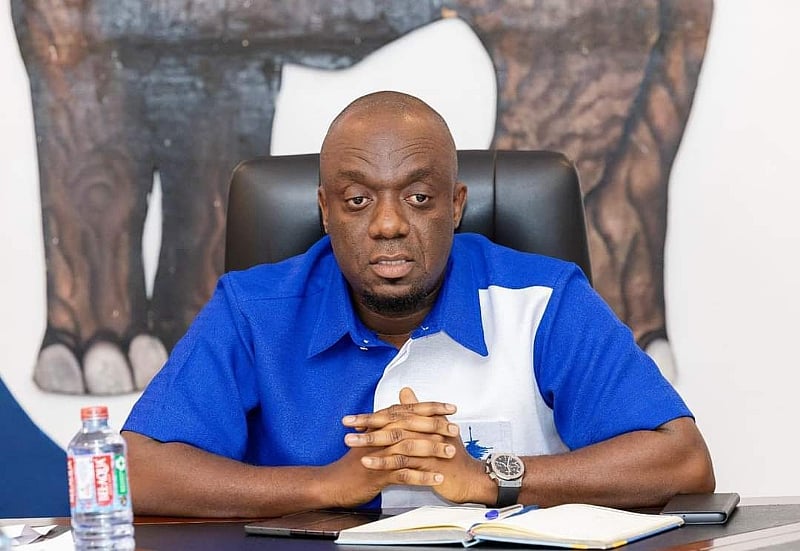The New Patriotic Party (NPP) has vehemently denounced the suspension of three of its Members of Parliament (MPs) following a disruptive incident in the parliamentary vetting room on January 30th. The party characterizes Speaker Alban Bagbin’s decision as a blatant act of selective and autocratic authority, designed to intimidate the Minority Caucus and undermine its capacity to hold the government accountable. The NPP contends that the Speaker’s actions represent a dangerous precedent, aimed at silencing dissent and weakening the checks and balances essential for a functioning democracy. This perceived attack on the minority’s ability to fulfill its oversight responsibilities has sparked a strong reaction from the NPP, which has vowed to stand firmly behind its affected MPs.
The NPP’s condemnation emphasizes the perceived injustice and lack of due process in the Speaker’s decision. The party argues that the suspension not only disregards the principles of natural justice but also violates the Constitution of the Republic. This perceived disregard for established legal and parliamentary procedures underscores the NPP’s concern about the Speaker’s actions exceeding his authority and setting a worrying precedent for future parliamentary conduct. The party’s rejection of the suspension is unequivocal, signaling its unwavering support for its 88 MPs and its commitment to resist any perceived attempts to suppress dissenting voices within Parliament. This stance reinforces the party’s dedication to upholding democratic principles and ensuring a balanced power dynamic within the legislative body.
In parallel with the NPP’s outcry, the Minority Caucus in Parliament has taken formal action by lodging a complaint with Speaker Bagbin, directly challenging the legality of the suspensions. The Minority Leader, Alexander Afenyo-Markin, in a memo dated February 3, 2025, asserts that the suspensions were implemented unilaterally, bypassing the established procedures outlined in Parliament’s Standing Orders. These orders mandate that disciplinary matters be referred to the Committee of Privileges and Immunities for thorough investigation and deliberation before any sanctions are imposed. The Minority’s argument centers on the Speaker’s alleged disregard for this crucial procedural safeguard, highlighting the perceived breach of parliamentary rules and the potential erosion of the MPs’ rights.
The core issue revolves around the events that transpired in the parliamentary vetting room on January 30th, which led to the subsequent suspensions. While the exact nature of the disruption remains unclear from the provided text, the NPP’s characterization of the Speaker’s response as “selective and autocratic” suggests a disagreement over the proportionality of the punishment and the underlying motivations behind it. The party’s assertion that the Speaker is attempting to “cow the Minority into submission” implies a belief that the suspensions are politically motivated, intended to weaken the opposition and limit its ability to scrutinize government actions.
The Minority’s formal challenge adds further weight to this perspective, emphasizing the alleged procedural irregularities in the suspension process. By circumventing the established protocol of referring such matters to the Committee of Privileges and Immunities, the Speaker is accused of acting unilaterally and denying the affected MPs a fair hearing. This perceived disregard for due process strengthens the NPP’s claims of an orchestrated effort to stifle dissent and consolidate power within the legislative body. The situation highlights the inherent tension between maintaining order and respecting the rights of individual members within Parliament, a delicate balance that is crucial for the effective functioning of a democratic system.
The clash between the Speaker and the NPP, along with the Minority’s formal challenge, has created a significant political standoff within Ghana’s Parliament. The outcome of this dispute will have implications for the future conduct of parliamentary proceedings and the balance of power between the ruling majority and the opposition. The NPP’s strong stance against what it perceives as an abuse of power signals a determination to protect the rights of its members and uphold the principles of democratic governance. The Minority’s legal challenge seeks to restore procedural fairness and prevent what they see as an attempt to silence dissenting voices. The resolution of this conflict will be crucial in shaping the future dynamics within Parliament and potentially influencing the broader political landscape of Ghana.














